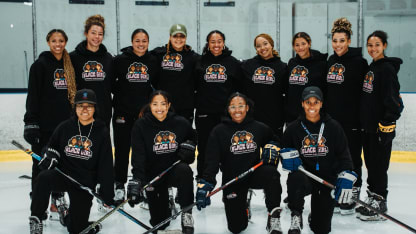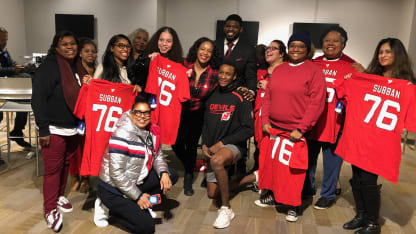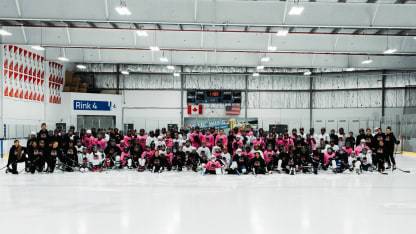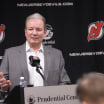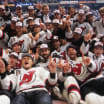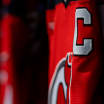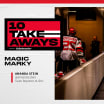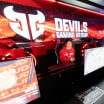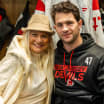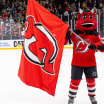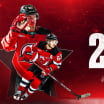And although the Devils will host a small gathering for the Black Girl Hockey Club on the Black History Celebration Night, Fatou insists that what they do matters beyond a single day of recognition. The Devils have been highly active in the Black community, and that’s one of the reason’s the Black Girl Hockey Club chose to partner with the team and attend the game.
“Are we your pet project for the month? If we are, I don’t think we want to partner with you,” she said firmly. “We’re Black every single day of the year, not just from February 1 to February 28. We have to be smart in the decisions of the people we partner with, because we take ourselves seriously, and we want to maintain the integrity of what our mission is.”
Fatou’s reflections are framed by moments of connection, like the ones they’ve experienced at games where strangers become friends.
“The white fans come like, ‘This is freaking awesome. You have a section to yourselves. What is this? An organization? What do you guys do?’” she recalled, her voice filled with the warmth of understanding. “It’s really cool because the majority of the people telling us this are not people who look like us. They’re often older white men, for example, who come up wearing a PK Subban jersey. That’s something we’re proud of – seeing that level of engagement from fans of all backgrounds.”
Fatou also points to how the visibility of Black Girl Hockey Club fosters a sense of belonging and connection.
“You’re with your group of melanated, beautiful friends, and then another melanated person comes over. They might say, ‘Hey, I’m talking to you because you look like me. Wait, what’s this about? How can I be a part of this?’” she said.
It’s this type of recognition that reinforces the importance of creating spaces where everyone feels welcome. And Anastasia knows that true change, the kind that lasts, comes only when we’re willing to confront that discomfort.
“Hopefully they are having those conversations,” she said, “and hopefully a lot of them are uncomfortable, so that they can come to good change.”
First and third photos courtesy of Akim Burke

